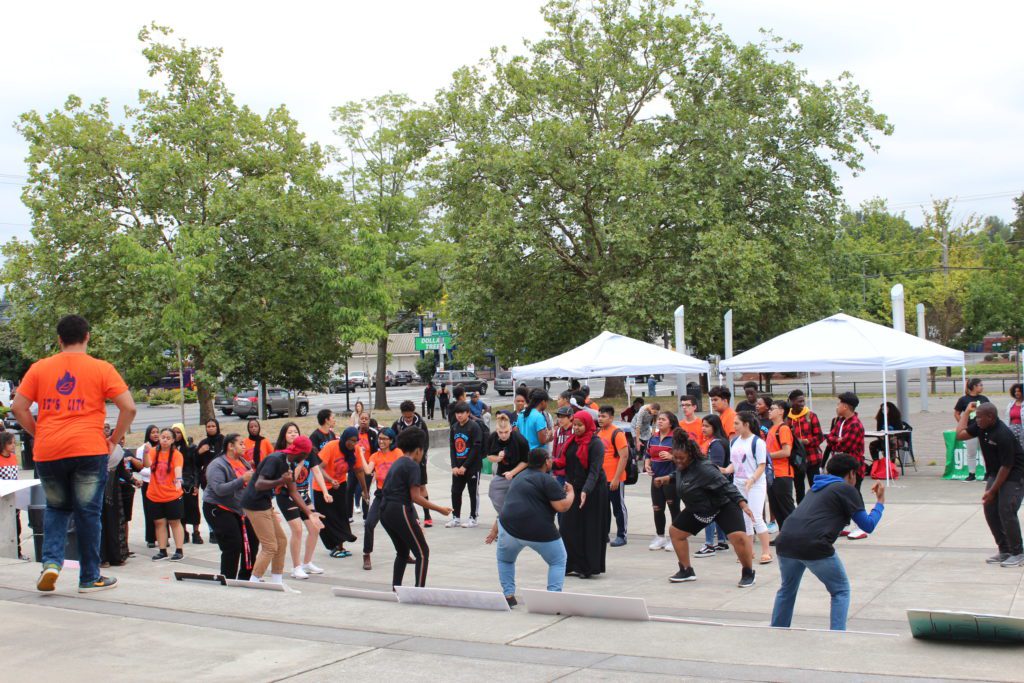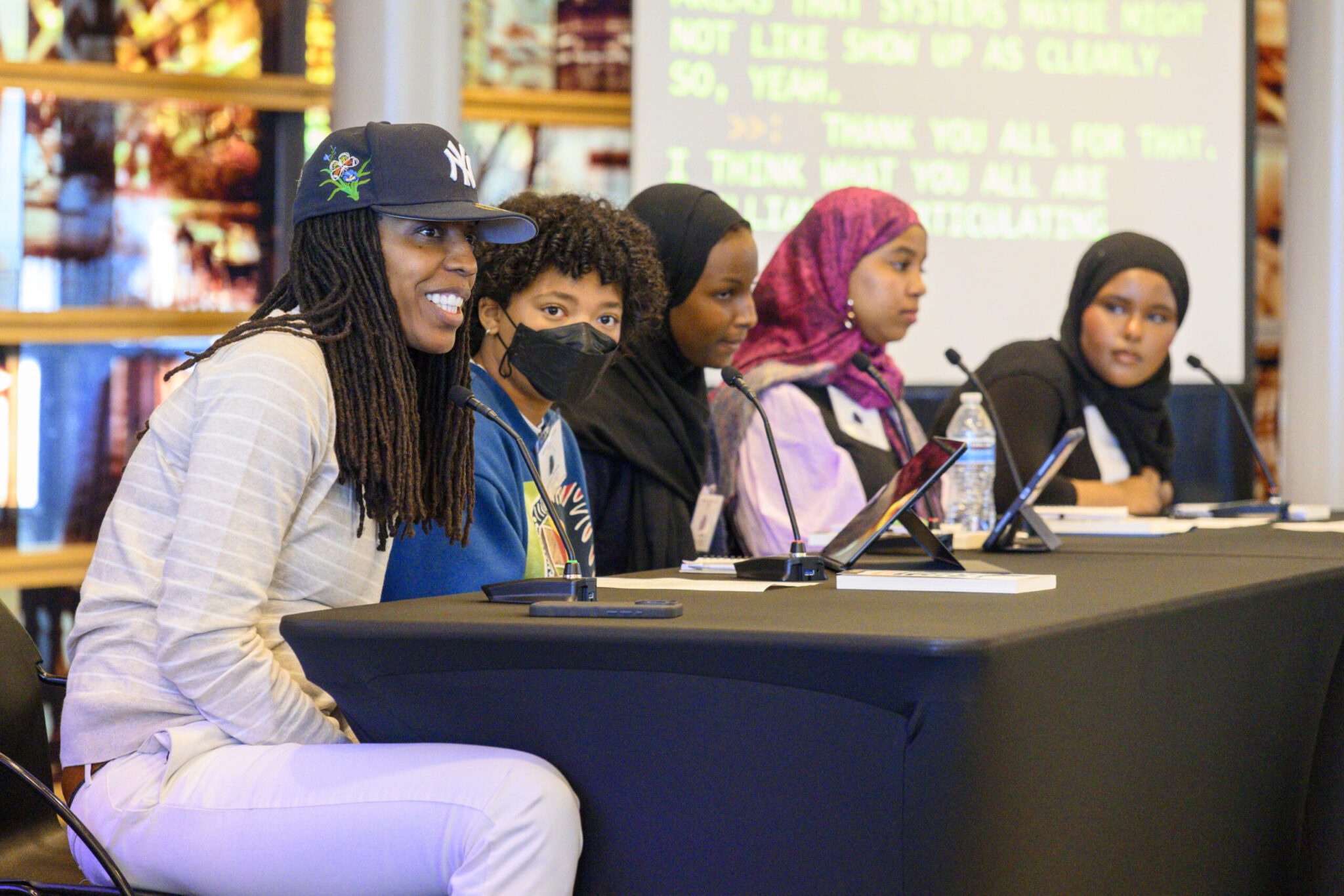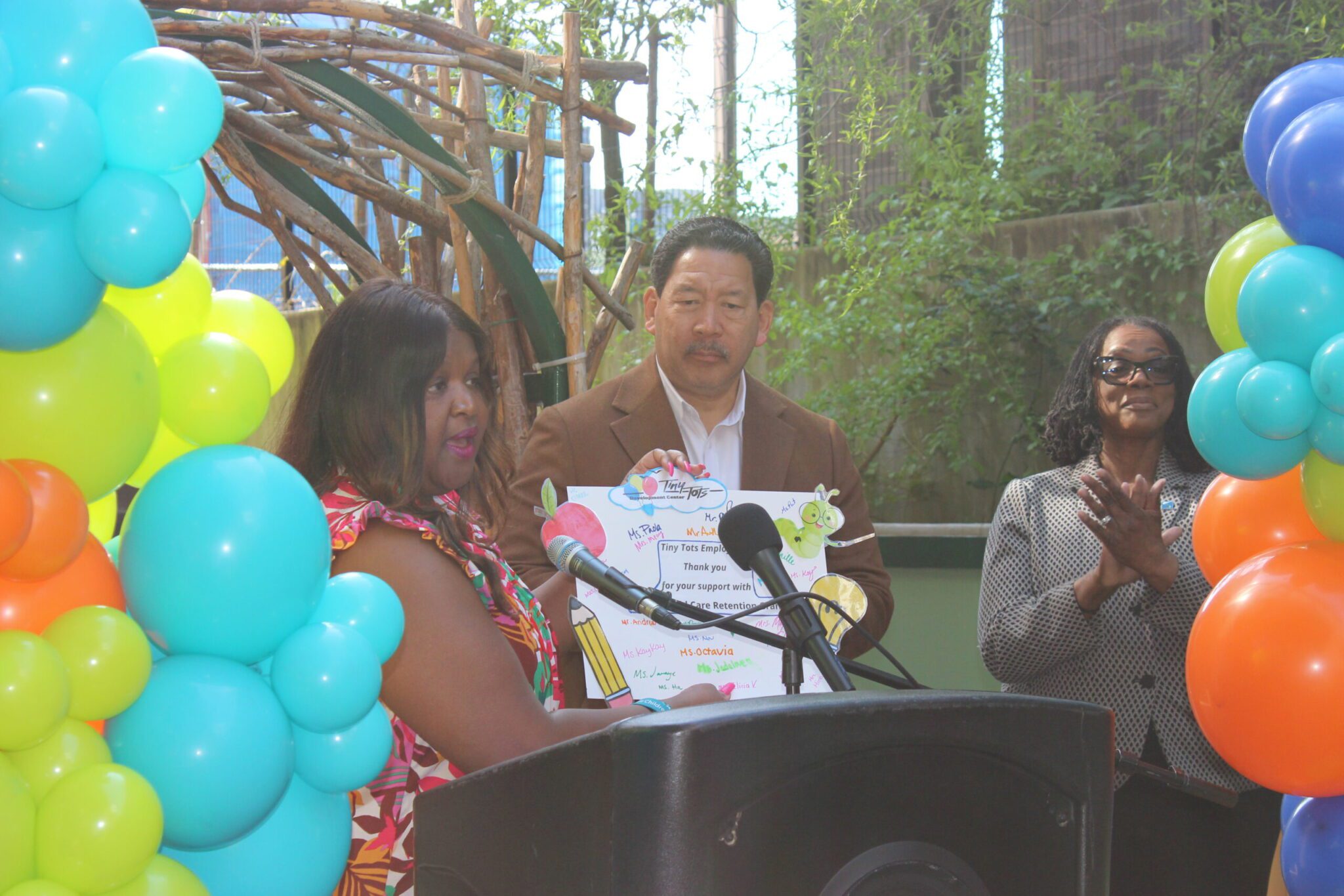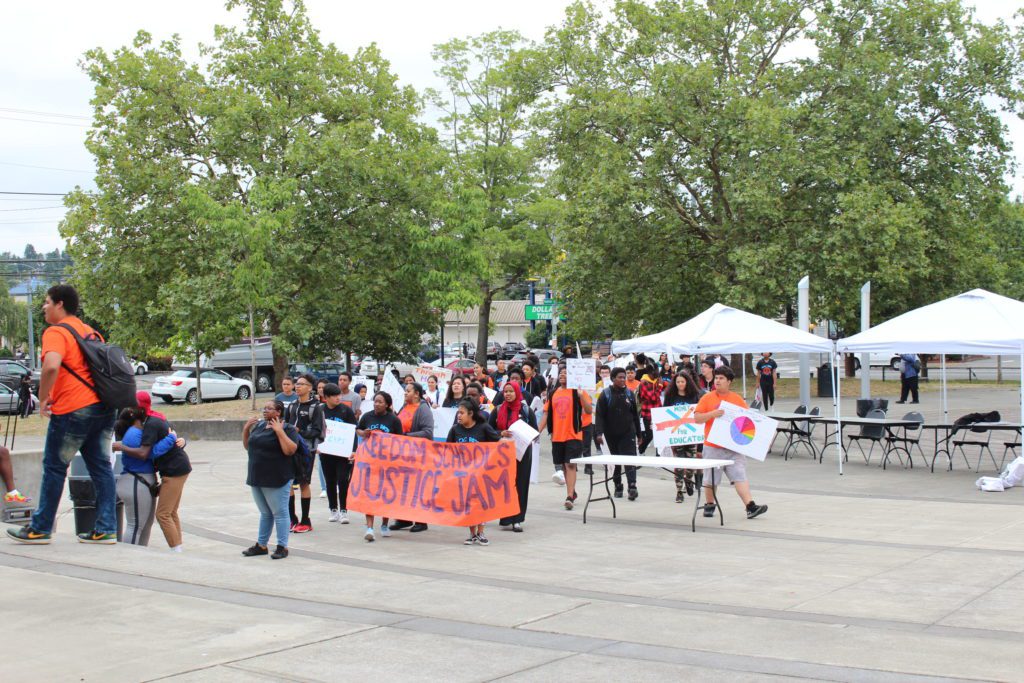
Over 30 students came along Henderson Avenue in Seattle’s Rainier Beach neighborhood, calling for funding for schools, for the end of the school-to-prison pipeline, and for taking steps to reduce climate change. When they reached their destination, the courtyard of the Rainier Beach Community Center, the students who were part of the Washington Building Leaders of Change (WA-BLOC) Freedom School program stopped marching and started setting up booths showing how they want to achieve the changes they were calling for.
The students—rising 9th and 10th graders—and their displays were part of WA-BLOC’s Day of Social Action, dedicated to pointing out the challenges and inequities in their communities and highlighting steps young people can start working on to reduce and end those inequities.
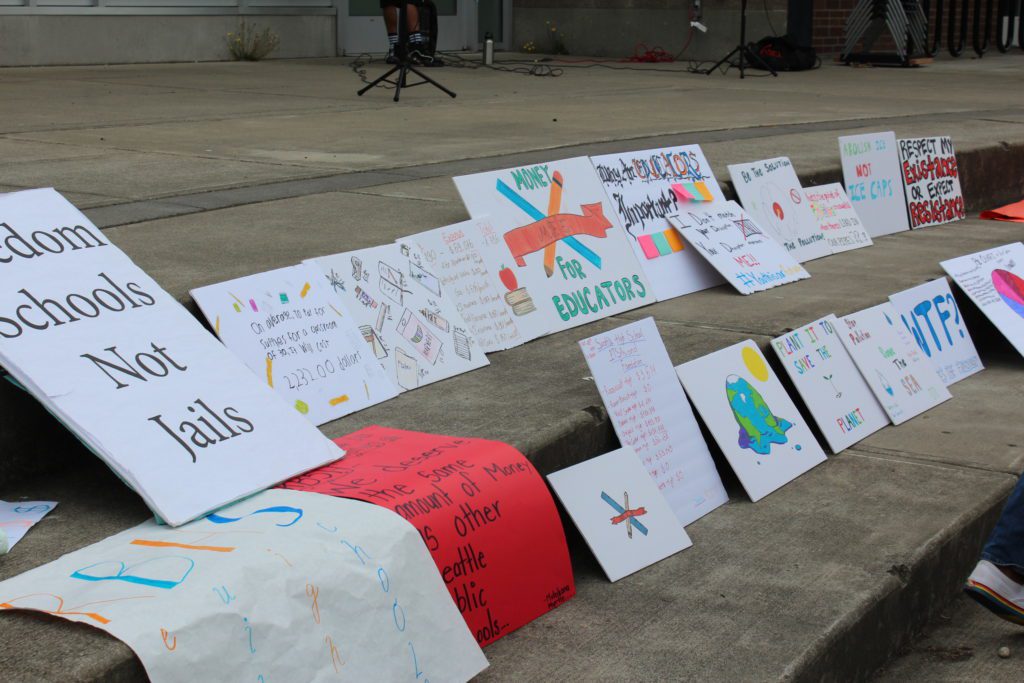
“We want them to understand how the actions they take can start small and grow until they impact the world,” said Jerrell Davis, Project Director of WA-BLOC’s Freedom School. “The goal of the school and the project is to allow our students to express and empower themselves.”
Students started the six-week project discussing with their Servant Leader Educator (SLE) the areas they wanted to be the focus of their Day of Social Action. Issues included:
- Seattle’s “Got Green” movement advocating for environmental, racial, and economic justice,
- Funding inequities in Seattle’s high schools and the lack of funding for school supplies
- Impact of climate change,
- Overpolicing and the impact of the school-to-prison pipeline in their community.
The SLE’s, college students who focus on developing a peer-to-peer partnership with the young people in their class, worked with the youth in developing the curriculum around the issue they chose. Students would then discuss and research these issues affecting their communities and those discussions would drive their research over the course of the summer learning program.
Davis said the research involved daily reading, which is a goal of the program.
“We want to improve their reading skills,” he said. “And every summer we see reading ability and comprehension improve, which is something that will help them in the future.”
The displays that took over the community center courtyard presented the issues and the steps students said needed to happen meet the challenges they spent the summer researching.
Rising Rainier Beach High School Sophomores Elias and Lawrence presented the funding inequities in Seattle High Schools, specifically the funds raised from PTSA groups. An example of that disparity was a comparison of the funds raised by Roosevelt High School’s PTSA. A story on KUOW Radio said that Roosevelt was able to raise over $3.5 million, funds that could go toward paying teachers to conduct college prep courses or afterschool activities. It’s a total that many Seattle high schools, including Rainier Beach, couldn’t hope to match.
“It was really an eye opener,” Lawrence said. “It was surprising because I truly believed we (Beach) had more money.”
For Elias it was a “reminder of the impact that money can have on a classroom and a school.”
WA-BLOC’s Freedom School works in collaboration with the Children’s Defense Fund (CDF), the organization committed to improving the lives of communities of color and underserved communities throughout the U.S. The CDF advocates for people of color having a greater voice in their communities, and Davis said the Day of Social Action is WA-BLOC’s effort to encourage their students to get active in making changes as early as possible.
This year is the fifth annual Day of Social Action, and Davis said previous years the action of young people had a direct impact on their communities.
“Our students have been active in pointing out the transportation inequities in our communities, which lead toward the city providing free ORCA cards to Seattle High School students,” Davis said. “Their actions encouraged the development of a community garden within the Rainier Beach ‘food desert’ to focus on developing healthy food over fast food and a grocery store that doesn’t welcome us.”
As the students celebrated the end of their Day of Social Action, Davis said the celebration was an act of expression for youth who are too often told the way they express themselves is a negative.
“They are told they’re ‘too loud,’ or that how they act is ‘not the proper way to express yourself,’ words that if said enough, will make you lose confidence,” Davis said. “We want them to be themselves and we want them to ask every day: How can I make a difference in:
–My Self,
–My Family,
–My Community,
–My Country,
–Any My World
And with Hope and Action.”
